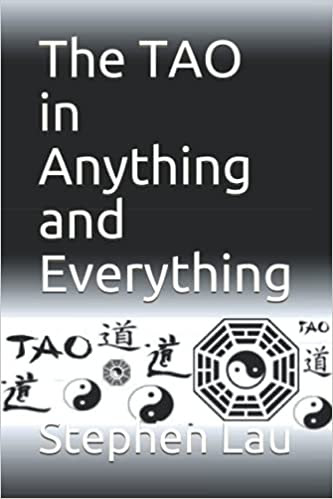Self-empower and self-intuit the profound wisdom of Lao Tzu, the ancient sage from China more than 2,600 years ago. True human wisdom is timeless and eternal.
The TAO in Anything and Everything

Get the TAO wisdom to live in reality with balance and harmony in every aspect of your life.
Tuesday, April 27, 2021
Attachments and Depression
Tuesday, April 13, 2021
Letting Go to Let God
in the image of God he created them;
male and female he created them.”
Thursday, April 8, 2021
BETTER ENGLISH FOR YOU - New Book
WHAT this book is all about:
This book is about every aspect of both written and spoken English.
It covers the basics as well as the essentials of good and effective written and spoken English.
It helps you avoid all the common errors made by both native and non-native speakers of English.
WHY you should read this book:
This book is for every one who speaks and writes English every day.
This book is especially for ESL learners who are not familiar with the use of the English language.
This book is also for native speakers of English, who need to write good English in their education, and throughout their careers.
CONTENTS
ONE: WHY BETTER ENGLISH
TWO: HOW TO HAVE BETTER ENGLISH
LEARING TO SPEAK BY SPEAKING AND TO WRITE BY WRITING
GETTING BASIC TOOLS FOR BETTER ENGLISH
An English Dictionary
A Thesaurus
THREE: BETTER WRITTEN ENGLISH FOR YOU
THE PURPOSE OF WRITING
THE ENGLISH GRAMMAR BASICS
Nouns
Pronouns
Adjectives
Verbs
Adverbs
Conjunctions
Prepositions
Interjections
THE ENGLISH SENTENCE
Sentence Patterns
Different Types of Sentences
Balanced Sentence Construction
THE TENSES
THE PUNCTUATION
The Comma
The Semi-Colon
The Colon
The Dashes
The Period (Full-Stop)
COMMON SENTENCE ERRORS
Avoid Double Negatives
Avoid Omission of Key Verbs
Avoid Omission of Words in Comparison
Avoid Dangling Participles
Avoid Misusing Dependent Clause
BEGINNING TO WRITE
Paragraph Development
Learn Commonly Used Difficult Vocabulary
Learn Commonly Used Difficult Vocabulary
Learn Idioms and Colloquial Expressions
Learn to Know the Difference
Learn to Avoid Wordiness
DEVELOPING THE TOPIC
Point of View
Tone
Planning the Writing
Writing the Introduction
Planning the Outline
Expanding the Writing
Writing the Draft
GOOD WRITING
Clichés
Figures of Speech
Italics
Simplicity in Writing
FOUR: BETTER SPOKE ENGLISH
Slang and Colloquial Expressions

